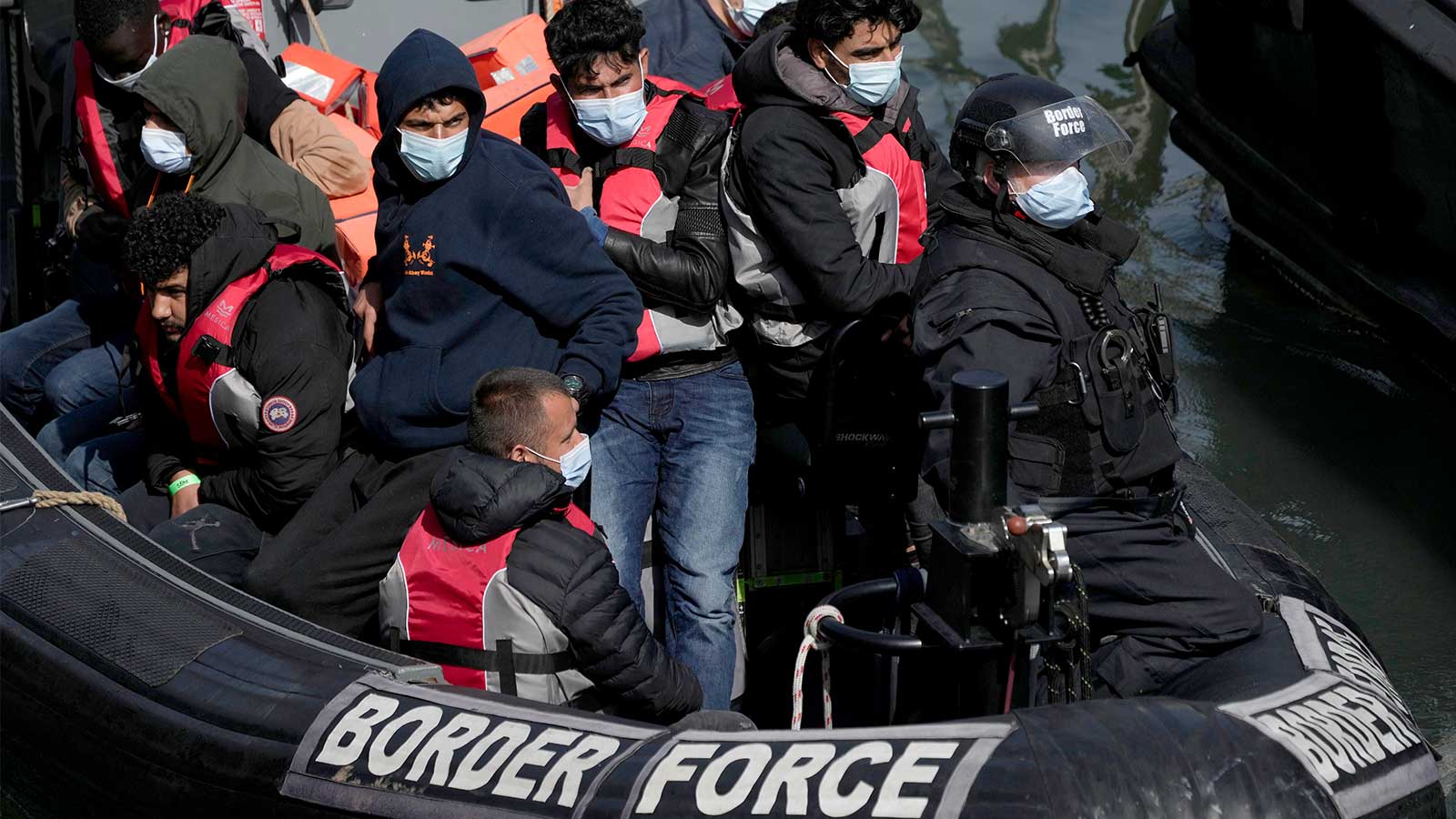Britain experienced a record number of illegal migrants arriving on its southern shore in the first three months of the year, piling the pressure on a Conservative government failing to appease its core voters on immigration.
A total of 4,644 migrants landed in southeast England on small boats from Europe up to March 26, according to provisional Home Office data — up considerably from 3,770 last year and the previous record high of 4,162 recorded in 2022.
Boat crossings were down toward the end of last year, prompting Home Secretary James Cleverly to trumpet the government’s efforts in cracking down on illegal immigration and claiming Prime Minister Rishi Sunak’s administration was honoring its pledge to “stop the boats.”
Cleverly dismissed critics who claimed that adverse weather conditions had been the primary contributing factor to the drop in arrivals; however, the recent spike in arrivals coinciding with warmer weather conditions and plainer sailing appears to lend credence to the theory.
The Home Office is now using the spiraling figures to push its immigration reforms currently held up in the House of Lords — the upper chamber of Britain’s bicameral legislature — claiming a change in the law is needed to ensure deportation flights can take off for Rwanda, the African nation with whom Britain recently signed an asylum agreement.
“The unacceptable number of people who continue to cross the [English] Channel demonstrates exactly why we must get flights to Rwanda off the ground as soon as possible,” a Home Office spokesperson said last week.
Conservative MP Robert Jenrick, the immigration minister who quit the government in December over concerns the Rwanda legislation didn’t go far enough to tackle the migrant crisis, raised fresh fears over the spike in numbers.
“When I resigned last year, I said the government’s approach to illegal migration was a triumph of hope over experience. And so it is proving,” he wrote on X.
“The public rightly demands and expects us to stop the boats. When they say they’ll do ‘whatever it takes,’ the government should mean it.”
Conservative voters in Britain have grown tired of empty promises, however, and appear to be voting with their feet against a party that has consistently promised to reduce immigration while allowing it to sky-rocket to unprecedented levels in recent years.
Recent polling has the governing party attaining almost half the vote share of the opposition Labour Party with 22 percent to 42 percent. A Redfield Wilton survey published on Wednesday made even grimmer reading for Sunak in Wales where the Tories could soon find themselves coming third in a two-horse race, sitting at 16 percent and just one percentage point ahead of the fledgling right-wing Reform UK party run by Brexiteer Richard Tice and closely affiliated with nationalist firebrand Nigel Farage.
Reform UK has called on Britain to leave the European Convention on Human Rights (ECHR) in order to implement measures to prevent arrivals and expedite deportations without vexatious appeals being made in Britain’s immigration tribunals.
The move has been supported by several backbench Conservative MPs including former Home Secretary Suella Braverman, but has not received widescale support among the government.
Last week, Conservative backbencher Andrea Jenkyns asked Sunak during Prime Minister’s Questions whether he would approve a pledge to hold a referendum on leaving the ECHR in the Conservative Party’s manifesto in the upcoming election, a proposal evaded by the U.K. prime minister who replied, “I will not let a foreign court block our ability to send people to Rwanda when the time comes.”






